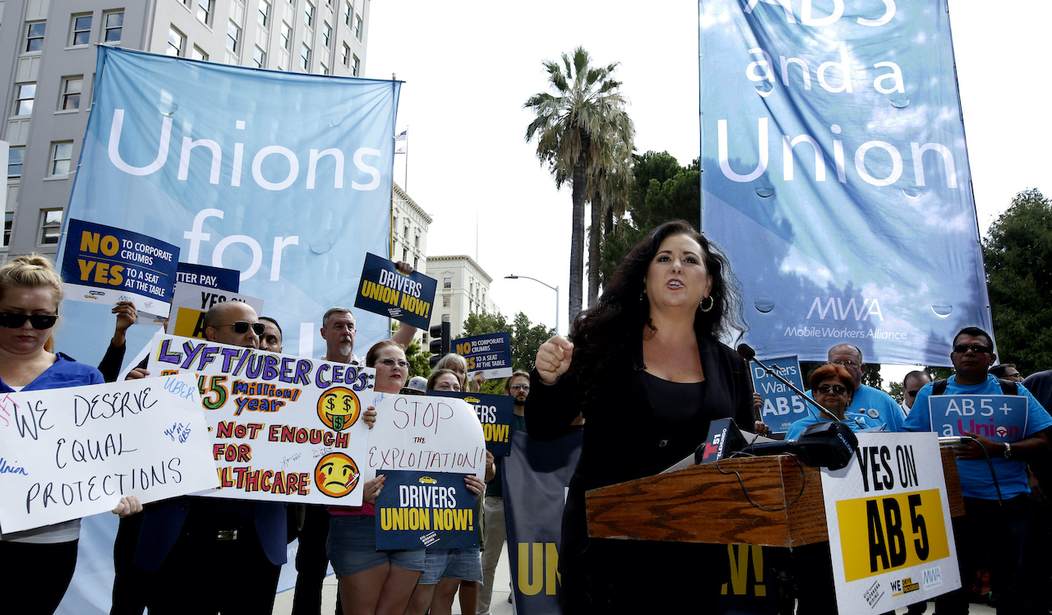The state of California is looking at mandating a 32-hour workweek for companies with 500 or more employees.
Any hours worked in excess of 32 hours per week would be classified as overtime to be paid at time-and-a-half. If the employee works 12 hours over the 32 hours maximum, it would be paid at double time.
The bill does not cover union workers.
The bill was written and proposed last week by State Assemblymembers Cristina Garcia and Evan Low, both of them Democrats. A similar bill is being pitched at the federal level under the Fair Labors Standards Act.
Garcia told The Los Angeles Times that the idea was prompted by a major shift in employee welfare that was born during the COVID-19 pandemic when many workers left their jobs seeking a better quality of life. According to the U.S. Bureau of Labor Statistics, more than 47 million Americans quit their jobs in 2021. The shift also comes as working from home has become more normalized amid the pandemic.
“We’ve had a five-day workweek since the Industrial Revolution,” Garcia told The Times. “But we’ve had a lot of progress in society, and we’ve had a lot of advancements. I think the pandemic right now allows us the opportunity to rethink things, to reimagine things.”
One of the immediate problems with this bill is that compensation levels for people covered by the bill remain the same. If you’re an hourly employee currently working 40 hours per week, you must receive the same amount of pay for working 32 hours a week.
It’s a government-mandated pay raise for all employees.
Unsurprisingly, the California Chamber of Commerce is describing the bill as a “job killer.” Ashley Hoffman, policy advocate for the California Chamber of Commerce, notes in a letter to Low that the bill acts as though companies can simply adjust hourly wages with a simple calculation to account for the change from 40 to 32 hours. But that’s not how wages work. An employee’s “rate of pay” as described in the bill includes not just wages but can include commissions and various other bonuses.
There are pluses and minuses to the idea that it’s extremely doubtful the radical left-wing, anti-business Democrats ever gave any thought to before introducing the bill.
If modernization inevitably leads to people getting as much (or more) work done in fewer hours than they did in the past, then shorter workweeks are an awesome byproduct. We’re certainly not going to complain about people having to work less. That’s one of the great things about innovation. It frees people up to do more with their time, like developing more innovations that may in the future make life even better for us all.
However, it’s not something that can be ordered top down via fiat by government officials who don’t have to deal with the consequences. A.B. 2932 doesn’t even have a ramping-up phase or a time-frame. If the law is passed as written, once it goes into effect, businesses will be expected to just change. Even the California Chamber of Commerce’s complaint isn’t fundamentally about having workers work less, though that’s certainly going to be a problem for many businesses, particularly those with lower margins that serve consumers seven days a week. The Chamber’s concern is that this bill is written so poorly and inflexibly that it’s simply oblivious to the consequences.
It’s no accident that the bill exempts companies that are unionized. But don’t worry. The next round of bargaining will see every single new union contract move to a 32-hour week if the bill is passed.
Some on the right think this is a ploy to get major companies to unionize. If union companies are exempt from the 32-hour workweek, it’s a strong incentive for companies to go the union route in order to avoid the headaches resulting from switching to a 32-hour week.
The idea has been presented before, but this time, with pandemic-related labor disruptions, there appears to be a more receptive audience. Hearings have yet to be scheduled on the bill’s merits, but that hardly means the end of this idea.










Join the conversation as a VIP Member